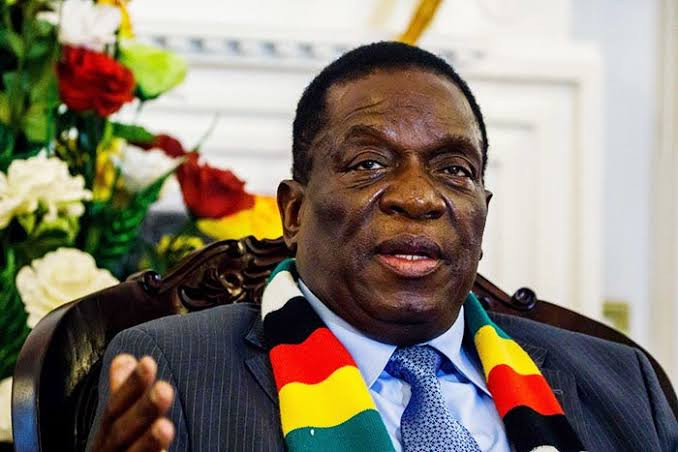
opinion:BY BREZH MALABA
WHEN highway robbers become a menace, does it make sense for the authorities to solve the problem by arresting Zimbabwe National Roads Administration (Zinara) officials?
This has become a burning question in Zimbabwe today as the Reserve Bank of Zimbabwe (RBZ) escalates its all-out war on the country’s largest mobile money transfer service, EcoCash.
The RBZ’s Financial Intelligence Unit (FIU) accuses EcoCash agents of abusing the mobile money platform by engaging in illicit financial dealings and causing turmoil on the foreign exchange market.
Officials at 80 Samora Machel Avenue are attributing the significant weakening of the freefalling Zimbabwean dollar to the illegal transactions on the mobile money platform.
Although any level-headed person would easily acknowledge that Zimbabwe has had a serious currency headache for quite some time now, it is absurd for the RBZ to dramatically train its machine guns on EcoCash.
Surely, in much the same way we cannot expect Zinara to account for highway robbers terrorising motorists. It simply does not make sense for the central bank to realistically expect EcoCash to single-handedly account for criminals in the mobile money system.
EcoCash is no saint, of course (nobody is), but such an illogical enforcement of gatekeeper liability will only criminalise the business of mobile banking. EcoCash is not the enemy! This is the equivalent of accusing Zinara of sending highway robbers to terrorise motorists.
- Chamisa under fire over US$120K donation
- Mavhunga puts DeMbare into Chibuku quarterfinals
- Pension funds bet on Cabora Bassa oilfields
- Councils defy govt fire tender directive
Keep Reading
Nobody is denying the fact that criminals exist in Zimbabwe’s financial system — they obviously do, like anywhere else in the world — but you cannot address criminality by resorting to straw-man arguments and targeting the wrong people.
After all, the RBZ has been showering praise on EcoCash in recent years for playing a crucial role in lessening the shortage of bank notes by rolling out the country’s most extensive mobile money solution.
What’s going on here?
The RBZ’s onslaught on EcoCash gained momentum this week — causing a great deal of trepidation on the financial markets —with the apex bank’s FIU writing a strongly worded letter to Steward Bank’s CEO Courage Mashavave, accusing the financial institution of failing in its fiduciary obligations by allegedly allowing users of mobile money trust accounts to facilitate illicit financial dealings.
EcoCash and Steward Bank are both subsidiaries of Cassava Smartech Zimbabwe Limited, a company which provides digital technology solutions to many sectors of the economy.
Cassava recently instituted a lawsuit in the High Court challenging an RBZ directive to freeze mobile lines of agents accused by financial intelligence monitors of facilitating transactions which went beyond the normal scope of licensed business.
This write-up will steer away from the court case — for legal reasons — and instead focus on the RBZ’s desperate attempts to employ a law-and-order approach to what is essentially a wider crisis of bad economic management.
Anyone who thinks they can police the market in such a crude manner is engaging in wishful thinking.
We have seen this before; there is nothing new under the sun.
Look, if the authorities craft good policies and desist from resorting to illogical measures meant to defy the laws of economics, the currency problem would not be this devastating.
Analysts warn that the ugly fight is disrupting the national payments system and could cause severe inconveniences to the transacting public.
As if the deliberate leaking of the RBZ’s letter to Steward Bank was not bad enough, two more letters — addressed to EcoCash chief executive Natalie Jabangwe and director Eddie Chibi — were subsequently leaked last week.
In those letters, the RBZ is threatening to slap heavy personal penalties on the senior managers for allegedly violating the Money Laundering and Proceeds of Crime Act (Chapter 9:24).
The RBZ accuses the EcoCash officials of “incompetence, ineptitude and unprofessionalism in the execution of duty”.
The highly personal tone of the letters from the RBZ is worrying, at several levels.
If public officials cannot maintain cool heads when dealing with important matters of national interest, the inevitable question arises: What exactly is going on here?
And it would seem whoever is leaking this confidential correspondence is determined to cause intimidation and inflict maximum damage.
What is the real problem?
It must be pointed out—without fear, favour or prejudice—that the government’s decision to re-introduce the Zimbabwean dollar was ill-advised, rushed and badly implemented.
The economic fundamentals were just not right.
In an economy devastated by decades of economic decline, you do not rush into introducing a local currency when there is no productivity to back it up.
In any event, scary memories of the hyperinflation years are still fresh on people’s minds. Without public confidence, a currency is dead in the water.
After committing the terrible blunder of re-introducing the Zimdollar, the government went on to make further catastrophic mistakes by printing money and coming up with a cumbersome gold producers’ incentive.
These two factors, among others, have contributed to the weakening of the Zimdollar.
The government must stop printing money. The issuing of phantom money is damaging.
What is happening to the economy is a manifestation of the symptoms of a dysfunctional monetary policy.
We must tell each other the truth and the truth shall set us free.
The government should desist from the destructive habit of arbitrarily grabbing the foreign currency generated by exporters and re-allocating it to a chosen group of non-producers at sub-optimal rates.
This is a major source of arbitrage and rent-seeking behaviour in the economy.
In the first place, we must ask ourselves whether a government in a supposedly democratic country has a right to grab exporters’ income and re-allocate it in the current manner.
Private enterprise must be respected. When we talk of the free-market economy — which is built on the principles of property rights and the rule of law—these are the issues we are referring to.
Foreign investors will not come to a country where property rights are not taken seriously.
The hijacking of forex from exporters and its re-allocation to a select group of non-producers via an opaque arrangement fuels arbitrage, illicit financial flows and is untenable.
That is not the only problem. The government must do away with the archaic practice of fixing the exchange rate.
They promised to introduce the Reuters system for forex trading, which would presumably allow banks to trade freely as a way of stabilising the exchange rate. This has not happened.
Remember, private companies are stranded right now as they are failing to access foreign currency after the RBZ swooped on bureaux de change.
The end result is the utterly ridiculous situation we now find ourselves in, where the government’s fixed inter-bank rate is at 1:25 yet the parallel market has reached 1:75.
Where is the logic? We cannot continue bragging that we are Africa’s most educated nation when we fail to grasp such elementary matters. Maintain cool heads
As we saw at the height of hyperinflation in 2008, when the chips are down and the authorities have no clue as to how to halt the frightening decline of the beleaguered Zimdollar, there is always a heightened risk that some panicky officials will dive headlong into desperate decisions.
The RBZ FIU is clearly overstepping its regulatory mandate and arrogating to itself superpowers that cannot pass the test of logic. Regulators cannot tell a bank who to licence and de-licence; it amounts to micro-managing a bank.
What next? Will they command the banks to facilitate illegal raids on forex accounts as the RBZ did during hyperinflation? It is a slippery slope.
The central bank’s financial management architecture should have built-in mechanisms to detect and isolate companies and individuals involved in illicit financial flows and take the appropriate action.
Usurping the executive authority of bank managers, adopting in-terrorem (fear-inducing) tactics and resorting to a commandist law-and-order approach to solving the currency problem can be very damaging not only to the RBZ’s standing in the eyes of the world, but also to the troubled economy as a whole.
What is the endgame?
l Brezh Malaba (@BrezhMalaba) is deputy editor of the Zimbabwe Independent.










